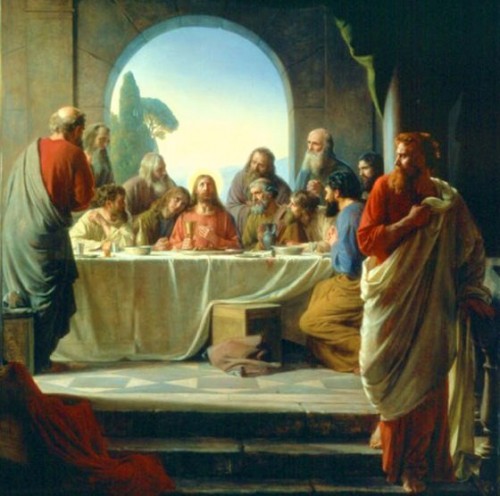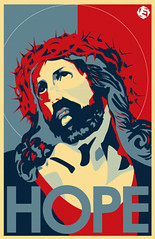
Judas carried with him into that field the burden of not receiving God’s grace because he was removed from the community in which he could hear it. In Judas’ ears there never was placed a word of grace. And let me tell you. …that’s not something the sinner can create for him or herself. – Nadia Bolz-Weber’s sermon on Judas
She continues…
We cannot in our isolation manufacture the beautiful radical grace that flows from the heart of God to God’s broken and blessed humanity. As human beings there are a lot of things that we can create for ourselves. Entertainment, stories, pain, toothpaste. We cannot create the thing that frees us from the bondage of self the thing the frees us from the shackles of sin and death and the guilt of all of it. We cannot create for ourselves the word of God. We must tell it to each other. You cannot as it was said of Judas “turn aside and go to your own place†of meditation or yoga or your own place of resentment and anger or your own place of voluntary simplicity or even prayer and create the proclamation of God’s grace. That’s why we have community. So that we can stand together under the cross and point to the Gospel. And it takes a good sinner to really get the gospel; which Bonhoeffer says is frankly hard for the pious to understand. Because this grace confronts us with the truth saying: You are a sinner, a great, desperate sinner, now come as the sinner you are to a God who loves you. God wants you as you are; God does not want anything from you; a sacrifice, a work. God wants you alone.
Nobody said this to Judas.
How would that early Christian community have been different if Judas had received forgiveness as the rest of them had. Again and again Jesus had said they should preach forgiveness of sins in his name. I mean, it was forgiveness of sin that got Jesus in trouble with the pious folks. He was pretty serious about the whole thing – mentioned it all the time even.
Maybe Judas was destined to betray Jesus. Maybe it all had to go down just like it did. And maybe Judas chose death too soon. Maybe he didn’t avail himself of the means of God’s grace…. But maybe his community never sought him out and offered. Maybe extending the Word of God’s forgiveness to Judas was simply too painful for them. Maybe it was easier for Judas to be the identified problem in the family. Certainly would have been tempting to me. Judas is the traitor…not us. We need a villain so that we don’t have to sit in the awkward and discomforting reality that it is actually all of us. Maybe his community failed him….
What do you think?
Did the community fail Judas? Or was he simply beyond redemption?
Perhaps the greater question…. Who in your community are you failing?
Listen to Nadia’s story on this week’s episode of the something beautiful podcast.
